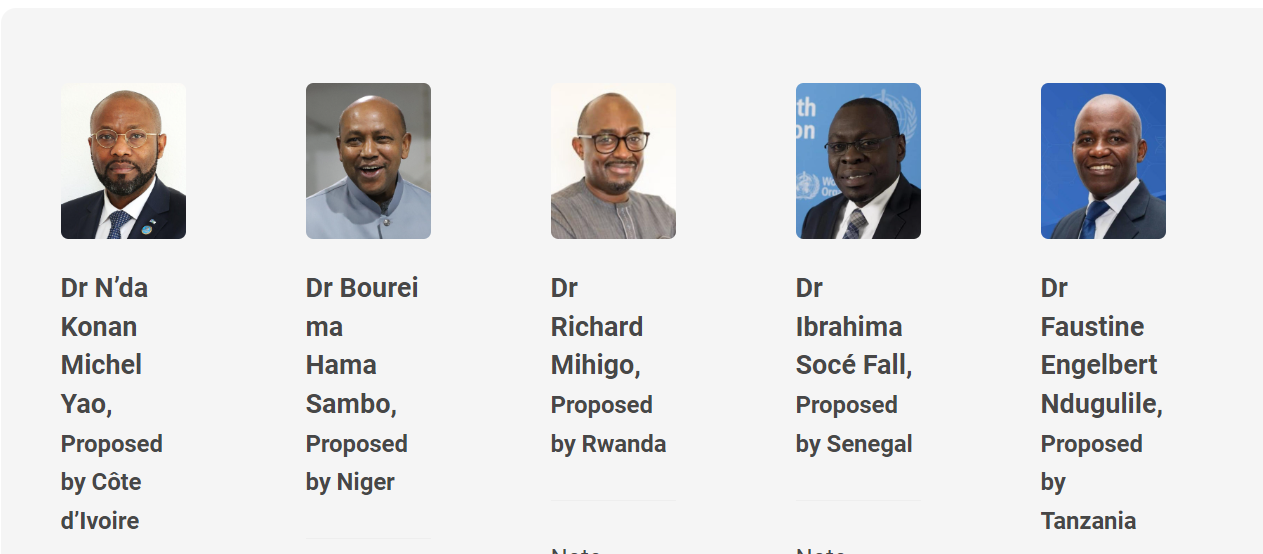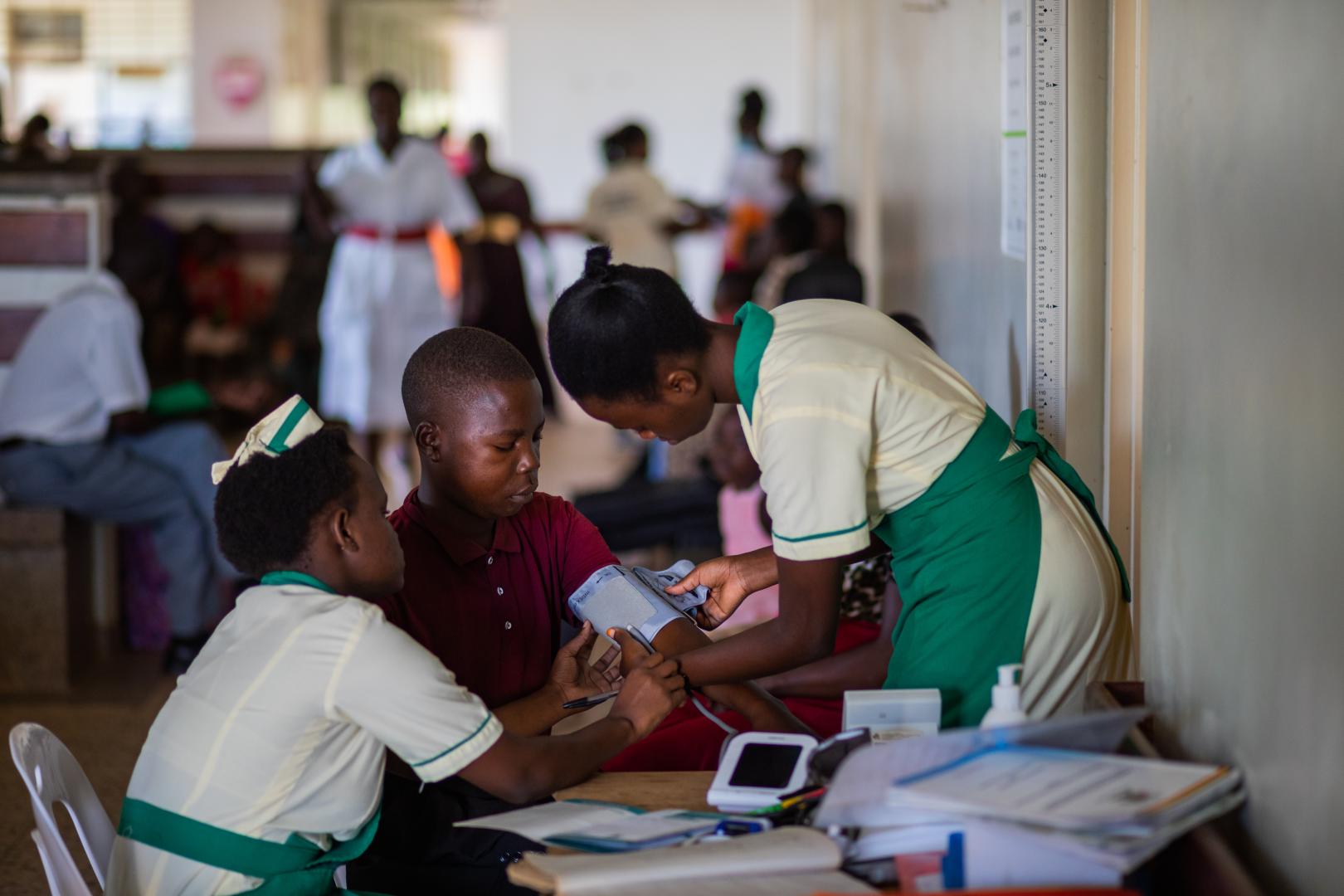The public often sees pharmacists as service providers limited to the counter, simply dispensing pills. While this was the traditional role, there is mounting evidence to show this is a narrow perception and a barrier to better healthcare—and in Tanzania, one dedicated professional, Leonard Buganda, is challenging the traditional narrative.
He is proving that a pharmacist’s true impact lies not just in the counter but working alongside doctors and nurses in the hospital ward. This practice, known as clinical pharmacy, means that a pharmacist’s expertise is used to directly improve patient outcomes and save lives.
Buganda is the walking proof that clinical pharmacy works. Down at the Jakaya Kikwete Cardiac Institute (JKCI), he continues his life-saving yet still rare work at the hospital, from which he has established a benchmark of dedication that all pharmacists across the country should strive to emulate.
That’s why he was officially crowned the Best Clinical Pharmacist in Tanzania during the 2025 World Pharmacists Day celebrations—which were themed “Think Health, Think Pharmacist.” The prestigious award was presented by Dr. Mpoki Ulisubisya, the Executive Director of Muhimbili Orthopaedic Institute (MOI), on behalf of the Ministry of Health’s Permanent Secretary.
The President of the Tanzania Pharmacists Association, Fadhili Hezekel, said that World Pharmacists Day is important because of the significant role pharmacists play in serving people.
But Buganda’s story of how he moved from “the counter to the bedside” isn’t just a personal achievement; it reflects a major shift in Tanzania’s entire healthcare system.
Think of it this way:
For decades, healthcare delivery was a well-established collaboration—mostly between medical doctors and nurses. The idea of a pharmacist being a key player in the ward is still relatively new in countries like Tanzania where one pharmacist is stretched to serve about 30,303 patients.
The value of a pharmacist in the ward is clear. According to Mary Kisima, Vice President of the Pharmaceutical Society of Tanzania, they act as a vital connector: “A pharmacist, when in the ward, bridges a gap of communication between doctors, nurses, and other health professionals.” Kisima’s acknowledgment of this benefit, however, comes alongside her recognition of the significant barriers most pharmacists face in transitioning to this clinical role.
If we want to know why most pharmacists are still stuck behind the counter—getting less involved in clinical work—we have to look at the challenges.
A study on this exact topic was carried out across five tertiary hospitals in the country. By interviewing over 80 doctors, nurses, and pharmacists, along with administrators, they gathered the hard evidence on what’s slowing the integration down and what’s actually helping it along.
Those who take bold steps to practice clinical pharmacy usually face hurdles at every level, and this makes the success of individuals like Buganda truly exceptional.
On an individual level, pharmacists often struggle with limited clinical skills and a lack of confidence, which is made worse by poor communication and entrenched superiority behaviors from other medical staff, making it hard to speak up in the wards.
Compounding this is a systemic shortage of pharmacists and a notable absence of formal support, including in-job training, clear guidelines, and Standard Operating Procedures (SOPs)—meaning they are trying to do a new, vital job without a written rulebook.
So, when we talk about this award-winning pharmacist, we’re really talking about someone who is pushing past all those documented barriers and, in doing so, is making the necessary recommendations from this study a reality on the ground!
But how did Buganda get so good at this difficult, clinical work? Well, he has a rock-solid educational foundation. He holds both a Bachelor’s in Pharmacy and a Master’s degree in Clinical Pharmacy from Muhimbili University of Health and Allied Sciences (MUHAS).
He specializes in making sure heart patients get the absolute best medication plan, which means his job spans the entire hospital, including the high-stakes critical care unit, general wards, and the follow-up clinics.
He’s not just passing out pills; he’s reviewing complex medication regimens, making therapeutic recommendations, and ensuring the efficacy and safety of every drug—directly contributing to better patient outcomes.
But what, exactly, does his work look like?
Buganda has gone the extra mile by dedicating most of his working hours to the Intensive Care Unit (ICU), supporting patients through some of their most critical moments, especially those recovering from heart surgery.
As he puts it, “Patients at the ICU require special care, and dedicating my time there means working hard to see a positive result.”
His passion is deeply personal: “Just recently, I met a university student who had undergone heart surgery and returned to full recovery. The joy in my heart cannot be explained – I just hugged him. That feeling drives me to save more lives through my career.”
The Power of Collaboration
Buganda’s story proves the exact point made by a study on multidisciplinary collaboration being the key to success. He credits his achievement not just to his own hard work, but to the support of the JKCI leadership and his clinical partners—specifically Dr. Vivienne Mlawi, a cardiac intensivist, and Dr. Smita Bhalia, a cardiologist.
“Their continued engagement has not only improved patient outcomes but also enabled me to learn more and grow professionally,”
Leonard Baganda
His award highlights the fact that the Ministry of Health in Tanzania has been actively promoting the clinical pharmacy agenda, moving to institutionalize the role of pharmacists in direct patient care nationwide.
This top-down support, combined with the successful, replicable model created at JKCI (which even recently hosted two visiting pharmacists from Zambia to learn their practices), shows that this evolution is not just a trend—it’s the future.
While celebrating Leonard’s success at the event in Dar es Salaam, Dr. Ulisubisya called on professionals to uphold the Pharmacy Regulations of 2020 and take the lead in fighting antimicrobial resistance by educating the public on the responsible use of medicines. The event also highlighted crucial system work, recognizing partners like CSSC and Action Medeor for their MAP-QPS project, which is already strengthening training by reviewing pharmacy curricula.
Despite this progress, CSSC Director Peter Maduki reminded attendees of the unfinished priorities needed to support people like Buganda: the formal recognition of specialist pharmacists, the establishment of pharmacy departments at ministerial and hospital levels, and the signing of the long-awaited National Guideline for Clinical Pharmacy Services.








